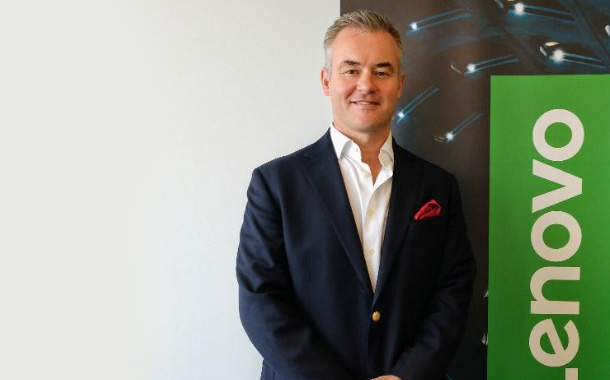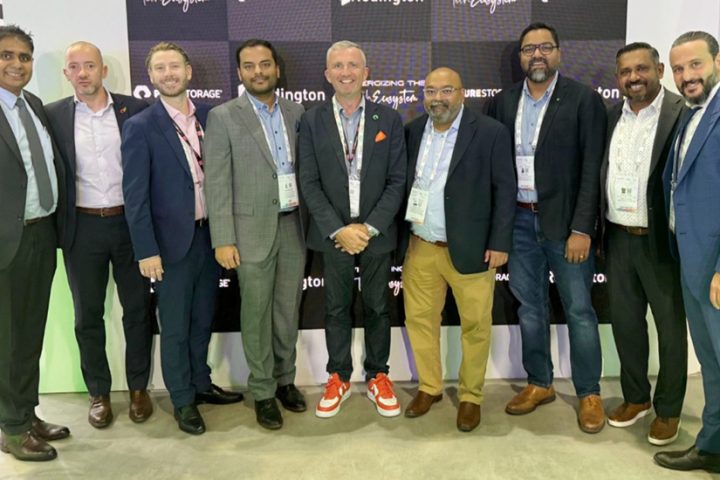A new age is dawning for companies in the Middle East and around the world. This oncoming era will require new skill sets, technologies, alignments and business models and will force them to globally reinvent and restructure entire systems of production, management and governance. This oncoming era will require intelligent transformation.
According to industry analyst IDC, annual spending on digital transformation initiatives in the Middle East, Turkey, and Africa (META) region is predicted to surpass $38 billion by 2020 (AED 139,574,000,000), accelerated by the large-scale adoption of third-platform technologies such as cloud, big data analytics, Artificial Intelligence (AI), Internet of Things (IoT), Robotics, Virtual Reality, etc.
With these unprecedented forecasts in mind, large organisations can expect 2019 to bring an evolution of change. Here are the top trends that can help them empower intelligent transformation as well as put themselves in a position to thrive in the new digital landscape.
Smart IoT: Great products are enough for consumers but large organisations need something more. They need great solutions.
These are complicated times for the enterprise. The feedback that we get from large customers who deploy our technology is this: the products must naturally be compelling but the ecosystem into which they settle is everything.
It’s no longer enough for tech companies to provide smartphones, laptops, servers, storage and networking products and then step aside. Their value comes in helping their customers pull it all together, in providing a holistic vision of a world that is not only connected but smart.
Hardware offerings are best when combined with that tech provider’s data and deeper learnings. You might call it Smart IoT. Companies who show leadership on this front and subscribe to this more sophisticated and broad approach will be the ones who lead the intelligent transformation. The rest will be left behind.
Artificial Intelligence: Emerging technologies that leverage AI will, in large part, define the future.
As voice, gesture and movement come to the fore, we’ll see an era of ambient computing emerge. This vision will be defined and enriched by advances in AI, speech recognition, machine learning and cloud computing.
Will computers go away? No. Devices will surely still play a central role in the connected world but it’s safe to say some aspects of your connected life will go into the ether. Consider what already exists and what might come next: A voice-driven smart speaker on a kitchen countertop, A Smart Display that acts as a family’s household hub, Useful health trackers embedded directly into your body. The sky’s the limit in terms of how we might leverage these new technologies to improve the lives of people.
One good example of a broader application is Unified Endpoint Management (UEM) technology, which helps people manage networks from a single source. Lenovo’s interest in this runs deep, from helping companies ward off hackers to helping first responders react more quickly in crisis situations.
Another application is Narrow AI (as opposed to the general AI we see in movies), which enables computers to perform highly specialized tasks extremely well. One way Lenovo is using Narrow AI is in health care. We created an AI solution that helps health professionals better detect liver tumors and increases general success rates for cancer diagnoses.
5G: Bet on 5G and other emerging tech to fuel the pace of transformation.
Whether or not you know it, the pieces for intelligent transformation are falling into place on a global scale as I type this. Smart devices are ubiquitous. Infrastructure is in place. Networks are accelerating. 5G connectivity is really what will make all the other trends mentioned here scalable.
If cloud, infrastructure and devices are the connective tissue across which intelligent transformation will play out, a handful of technologies will provide the fuel for that transformation: bet on AI, AR, IoT and 5G to be the fuel that enables new ways of working and accelerates the pace at which this transformation occurs.
5G, which is 10 times faster than 4G, deserves special mention for the way it is expected to revolutionise networks. 5G download speeds will transform how people engage with the world overnight. This breakthrough will help mainstream things like driverless cars, smart wearables, gaming, home security and industrial intelligence.
AR & VR: If you think Augmented Reality and Virtual Reality are just for gamers, you’re missing the bigger story.
The impact of AR and VR on gaming has been well-documented and continues to grab the headlines in the mainstream press. But shrewd observers know that the effect these fast-developing technologies are having on business is nothing short of transformational.
The technology first went mainstream with games like Pokémon Go last year, but actually has far more interesting business use-cases. For example, Lenovo helped develop a tech solution for a Utah-based cancer facility to help identify melanoma. The solution leverages AR head-mounted displays and AI glasses to better map mole progression.
In conclusion, for businesses to take advantage of these trends next year and the years after that, they will need to invest in infrastructure that is open yet secure, flexible, and delivers speed and reliability.
With these developing trends in mind, Lenovo is helping to transform productivity and collaboration by setting the scene for helping people work smarter with innovative emerging technologies. This year (September 2018) we announced a series of new products, partnerships and solutions designed for business customers that reflects the company’s ongoing Intelligent Transformation strategy. The strategy reflects Lenovo’s unique business perspective on how to build end-to-end solutions with smart features that transform businesses and improve the user experience.














